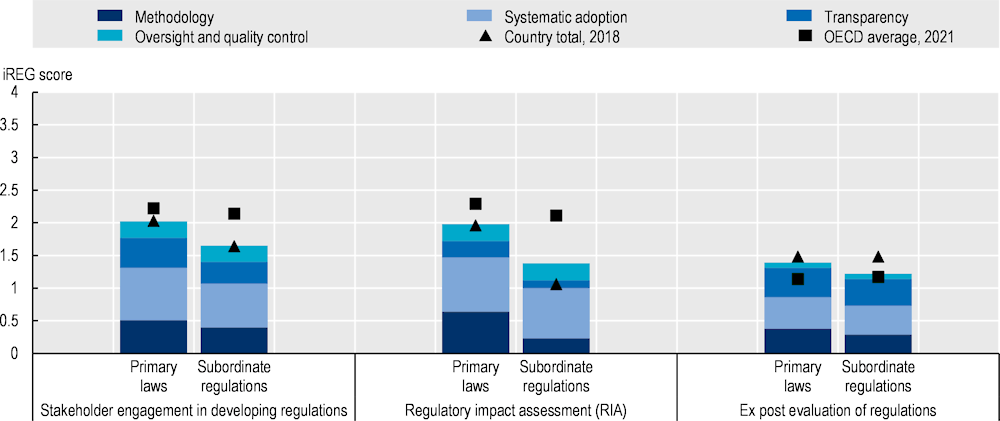Regulatory reform has been an important feature of the Danish government agenda since the 1980s. Denmark has recently introduced significant institutional reforms to support the implementation of both the principles on agile (innovation-friendly) business legislation, aiming to support the ability for businesses to test, develop and apply new technologies and business models, as well as the principles on digital-ready legislation, aiming to ensure that legislation can be administered digitally. To ensure optimum results of the new institutional framework, role clarity and effective co-ordination between the distinct bodies will require attention.
The mandate of the Better Regulation Unit (former Team Effective Regulation) at the Danish Business Authority has been expanded. In addition to performing the quality control of RIAs of regulations creating significant burdens for businesses and providing guidance and training in the use of good regulatory management tools, this body is also in charge of overseeing compliance with the country’s principles for agile (innovation-friendly) business regulation as well as the principles for implementation of business‑oriented EU-regulation.
The Danish Business Regulation Forum (DBRF) was set up in 2019 by merging the Danish Business Forum for Better Regulation and the EU-Implementation Council. Served by a Secretariat in the Ministry of Industry, Business and Financial Affairs, it advises the government on the development and application of the methodology for RIA, and the principles of agile (innovation-friendly) business regulation. It also conducts in-depth reviews of regulations in different policy areas. Finally, the DBRF focuses on identifying simplification options in areas where digitisation and new technological trends will challenge the regulation, as well as business-oriented digital solutions.
The Secretariat for digital-ready legislation was set up within the Ministry of Finance in 2018. It receives draft legislative proposals six weeks before their publication for public consultation and issues recommendations regarding compliance with the seven principles of digital-ready legislation as well as to improve implementation impact assessments. According to Danish authorities, government ministries incorporate at least some of the secretariat’s recommendations in the final bills presented before parliament in about 75% of cases.
Denmark systematically engages with stakeholders in the later stage of the regulatory process. Full RIAs are required to be carried out for both primary and subordinate regulations above certain thresholds. The government periodically reviews existing regulation with significant impacts and the DBRF is involved in reviewing existing regulations.
Transparency could be further strengthened by informing the public in advance that a public consultation or a RIA is due to take place. The use of RIA could be further strengthened by the introduction of an oversight function that allows for returning proposed rules for which impact assessments are considered inadequate and which is not limited to regulations affecting business.


 All/■ Always/▲ Yes
All/■ Always/▲ Yes  Major/■ Frequently
Major/■ Frequently Some/■ Sometimes
Some/■ Sometimes Never/▲ No
Never/▲ No